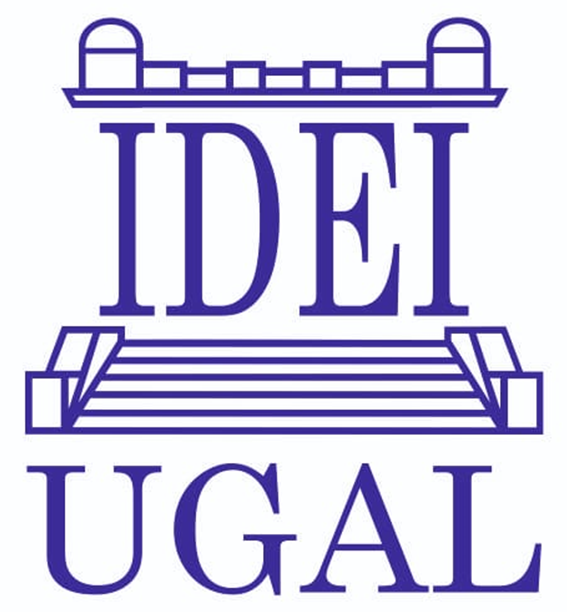Keynote Speaker
Boris Rubinsky
Professor of the Graduate School
University of California, Berkeley, CA, USA
Prof. Rubinsky Boris received his BSc and MSc from the Technion in Israel and the Ph.D. from MIT. In 1980 he joined the Mechanical Engineering Department at UC Berkeley and later the UC Berkeley Bioengineering Department, of which he was one of the founders. At UC Berkeley he was the Chancellor’s Professor and the Silverman Distinguished Professor of Bioengineering till 2008 and is now a Professor of the Graduate School. From 2007 to 2009, he took a leave of absence, to found the Department of Bioengineering and the Center for Bioengineering in the Service of Humanity and Society at the Hebrew University that brought together Israeli and Palestinian students. PhD graduates from that program are now Professors at top Israeli and Palestinian Universities. Rubinsky’s research spans numerous areas, from plasma arc welding in space to Weierstrass - Mandelbrot modeling of turbulence. He contributed to various fields of bioengineering, pioneering several leading medical technologies, which he led from pioneering the concept to developing the clinical practice and commercialization. Noteworthy are the technology of imaging monitored cryosurgery which is now the clinical standard of the field, the technology of nonthermal irreversible, which is now clinical and at the forefront of minimally invasive surgery, the technology of non-invasive electromagnetic detection of internal bleeding which is in clinical trials, MEMS technology for single cell analysis which is now ubiquitous and many others.
Boris Rubinsky received the H.R. Lissner Medal for recognizes outstanding achievements in the field of bioengineering.
Boris Rubinsky received the H.R. Lissner Medal for recognizes outstanding achievements in the field of bioengineering.
Title: Bioengineering Technologies – From Pioneering Concepts to Clinical Practice
Abstract: The presentation will expand on some selected topics in bioengineering, which I have developed from fundamental concept to clinical practice and commercialization. They include: the work on imaging monitoring cryosurgery, which is now the clinical standard, and which I developed from pioneering the concept to clinical implementation and commercialization; the fundamental work on freeze and cold resistant animals, which led to the first company that commercialized transgenic animals for food (salmon) and the work on genetic engineering modeling; the work on medical imaging that includes: optical imaging, internet and cell phone based imaging, electrical impedance tomography, all of which led to the commercialization of FDA approved electromagnetic spectroscopy for non-contact detection of internal bleeding; the development of the first MEMS device with a live cell for genetic engineering and diagnostic – which is now ubiquitous; pioneering the concept of non-thermal irreversible electroporation (NTIRE) (which is now clinical and at the forefront of minimally invasive surgery) - which I lead from pioneering the non-thermal concept to technology development to commercialization. I will also mention briefly the ongoing research in my lab which includes: temperature controlled 3D cryoprinting, isochoric cryopreservation and a new NTIRE based technology in regenerative medicine for which I will show how pancreatic islets become incorporated and produce insulin and glucagon in an in vivo NTIRE decellularized matrix in the liver.

Keynote Speaker
Ștefan Dascălu, MA DPhil (Oxon)
Immunology Researcher and Healthcare Consultant
University of Oxford, United Kingdom
Dig Worldwide Ltd, United Kingdom
Ștefan Dascălu is an Immunology Researcher at the University of Oxford and a Healthcare Consultant at Dig Worldwide in the United Kingdom. He completed his doctorate in Interdisciplinary Bioscience (Immunology) at the University of Oxford, where he also studied for his MA in Biological Sciences. Ștefan contributed to national and international COVID-19 pandemic mitigation efforts through various activities including governmental consultancy, public health communication, and advisory responsibilities in vaccination and epidemiology. Alongside these activities and a number of academic publications in immunology and public health, Ștefan received several prestigious awards, including the Social Impact Award (2021) from UK Research and Innovation (UKRI) and a Knighthood of the Order of Cultural Merit for Scientific Research from the President of Romania (2022). Ștefan is also a strong advocate of faith-based community engagement for public health, and his contributions during the pandemic led to him being awarded the "Order of the Holy Brâncoveanu Martyrs" (2021) from His Beatitude Daniel, Patriarch of the Romanian Orthodox Church.
Titlu: „Viitorul digitalizării şi interdisciplinarității în sistemul sanitar românesc”
Abstract: România se află pe primele locuri din lume la numărul de specialiști IT pe cap de locuitor și are printre cele mai rapide viteze medii a internetului la nivel mondial. Totodată, România investește foarte puțin în sistemul național de sănătate, unde încă există probleme majore cu digitalizarea serviciilor și generarea unor baze de date destinate îmbunătățirii actului medical. Această prezentare va ilustra perspectivele naționale și regionale folosind ca exemple situația unor boli transmisibile și netransmisibile, subliniind potențialul colaborării interdisciplinare pentru a aduce un beneficiu substanțial pacienților din sistemul public de sănătate. Totodată, recomandările pot fi generalizate pentru a fi aplicate și altor țări, având astfel utilitate și relevanță pentru comunitatea internațională.

Keynote Speaker
Victor OANCEA
SIMULIA R&D Sr. Technology Director, CSO Structures
Victor earned his PhD from Duke University in 1996 in the area of computational mechanics. He then joined what was the Abaqus R&D development in Rhode Island, which today is part DASSAULT SYSTEMES SIMULIA Corp. Victor has worked in a variety of R&D positions through the years and is today the Senior Technology Director and the Chief Scientific Officer for Structural applications. In the last few years at SIMULIA Victor has led from a simulation technology perspective a variety of multiphysics/multiscale simulation initiatives including machine learning, battery cell engineering, additive manufacturing, micro-mechanics based multiscale materials, particle methods for extreme deformation, oil and gas multiphysics formulations, realistic human simulation capabilities, co-simulation-based multi-physics modeling.
Titlu: Inteligenta Artificiala Pentru Explorarea Designului Machine Learning for Design Exploration
Abstract: Physics-based simulations are often used to drive product design. To extract meaningful information to support design decisions, model surrogates are often used to reduce execution times to allow a high number of parameter evaluations in the design space. Historically, these model surrogates only provide limited information through a few scaler KPIs. To retain comprehensive 3D simulation results while massively reducing execution time, this work presents a neural network approach towards 3D interactive design exploration. 3D multiphysics-multiscale simulations (FEA analyses of structural statics, dynamics, manufacturing, packaging and safety; CFD analyses of compressible fluids) are used in a Design of Experiments (DOEs) to generate the parametric design data. This data is then processed and used to train neural networks as full 3D surrogates for fast and accurate predictions both transient physical responses and full 3D fields.

Keynote Speaker
Adrian Nicolae Lemeni
Assoc. Professor & Director of the Doctoral School at the Faculty of Orthodox Theology, University of Bucharest
Director of the Center of Dialogue and Research in Theology, Philosophy and Science, University of Bucharest
Nicolae Adrian Lemeni, născut în județul Alba, este un teolog roman, doctor în teologie, care a îndeplinit funcția de Secretar de Stat pentru Culte în perioada 2005-2007 precum și din 2009 până în 2012. Este absolvent al la Facultății de Mecanică din cadrul Universității Politehnica din Timișoara.
Este, de asemenea, absolvent al Facultății de Teologie Ortodoxă a Universității din București. Este autorul unor lucrări referitoare la relația dintre rațiune și credință în cadrul studiilor postdoctorale de la Institutul Catolic din Paris.
A ocupat de-a lungul timpului funcția de director al Centrului pentru Dialog și Cercetare în Teologie, Filosofie și Știință din cadrul Facultății de Teologie Ortodoxă, Universitatea din București, director al Școlii Doctorale din cadrul Facultății de Teologie Ortodoxă Justinian Patriarhul, Universitatea din București.
Titlu: Structura non-computationala a mintii umane evidentiata de Kurt Gödel
Abstract: Gödel din interiorul logicii matematice afirmă faptul că nu există o echivalenţă între adevăr şi demonstraţie, că vederea adevărului mai presus de posibilităţile reduse ale gândirii axiomatice este mai întemeiată decât orice demonstraţie, deschizându-se astfel către perspectiva Tradiţiei patristice care afirmă superioritatea vederii adevărului prin credinţă faţă de certitudinea generată de demonstraţie. Mai ales pentru societatea informaţională de astăzi, dominată de ceea ce presupune puterea raţiunii tehnicizate este edificatoare recuperarea şi valorificarea unei viziuni substanţiale: adevărul se află în alt registru faţă de algoritmii generaţi de inteligenţa de tip tehnic.

Keynote Speaker
Liviu Mocan
Sculptor
Artistic credo: I am striving to polish mirrors for heaven.
Status: self-employed
He was born in the year of grace 1955 in the village of Cara, Romania, from where, following the confiscation of material goods by the communist regime, his family moved to the city of Cluj.
Here, as a child, he started on the path of the arts, graduating in turn from the Little School of Art, the High School of Art, the Academy of Art, then he completed post-academic studies at two universities in North America.
He undertook study trips to the most important centers of universal sculpture.
He has exhibited in solo and group exhibitions and has works of art in private collections on all continents and created public works in four of them.
He lives with his family and create in Cluj-Napoca, Romania.
Status: self-employed
He was born in the year of grace 1955 in the village of Cara, Romania, from where, following the confiscation of material goods by the communist regime, his family moved to the city of Cluj.
Here, as a child, he started on the path of the arts, graduating in turn from the Little School of Art, the High School of Art, the Academy of Art, then he completed post-academic studies at two universities in North America.
He undertook study trips to the most important centers of universal sculpture.
He has exhibited in solo and group exhibitions and has works of art in private collections on all continents and created public works in four of them.
He lives with his family and create in Cluj-Napoca, Romania.
Title: My ark
Abstract: This lecture is a confession about my spiritual journey, about the understanding of the meaning of the divine call for my destiny, in other words, the search for the answer to the question: - what do I do with my life/why I do what I do?
The objective of this professional confession is to be a possible source of inspiration in the matter of individual destiny, regardless of its area of activity.
My professional model is an artist who appears in the second book of the Bible: the master Bețalael.
In order to understand his character and thus, to identify fundamental areas of the condition of an artist, I meditated on the text and created a series of 12 visual essays, entitled "The story of master Bețalael, or the prayer of a sculptor".
Thus I flew over aspects such as: gift, work, obstacles, balance, transparency, joy, discipleship, death, resurrection, etc.
The second part of the lecture analayzes Bețalael's creation, namely the "Meeting Tent" Exhibition Complex with the six brilliant art objects that he created together with his group of artists.
Since the clymax of the exhibition fell on the sixth object, entitled ”The Ark of the Covenant", we will analyze especially this one.
In the third part, the lecture will focus on the prophetic, universal role of the "Ark", respectively, how in fact, it addresses each of us.

